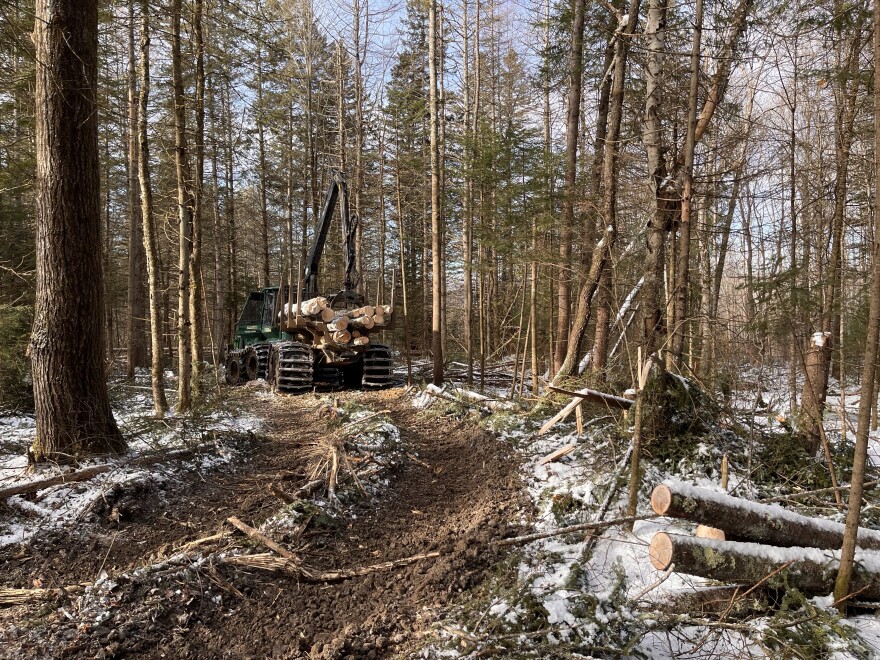Vermont is getting warmer and wetter due to climate change — especially in the winters.
Loggers can't work when the ground is soft and muddy, which means the number of days a year they can spend in the woods is shrinking. The loss is extra tough for a cash-based industry.
Trevor Allard is among the loggers urging Vermont lawmakers to dedicate more flood relief to the timber products industry. He's with Allard Lumber in Brattleboro, the biggest hardwood sawmill operation in Vermont, which employs about 60 people.
And Allard says the mill has been forced to operate on reduced hours all summer. Then this fall, they had to drop Fridays.
He says they've faced month after month of difficult weather.
"We came out of this past terrible winter and we said, 'Well, we squeaked by, as long as we have a good summer, everything will be alright.' And of course that hasn't happened," he said.
Sam Lincoln is a master logger from Randolph Center. He's also a former commissioner of the Vermont Department of Forests, Parks and Recreation, and he says Vermonters don't realize how impactful the July floods were for logging.
"The saturated soils not allowing our equipment to operate, and it's had an enormous impact, a very large impact on us financially, our employees, the supply chain, that we provide raw materials to," Lincoln said.
As part of a $5 million proposal, lawmakers want to study the economic impact of forest products in Vermont, and the industry's workforce needs. They also want to pay loggers to comply with state regulations intended to protect water quality and climate resilience.
And they want to create a program to provide free safety training for people getting into the business.
Have questions, comments or tips? Send us a message, or contact reporter Abagael Giles:





